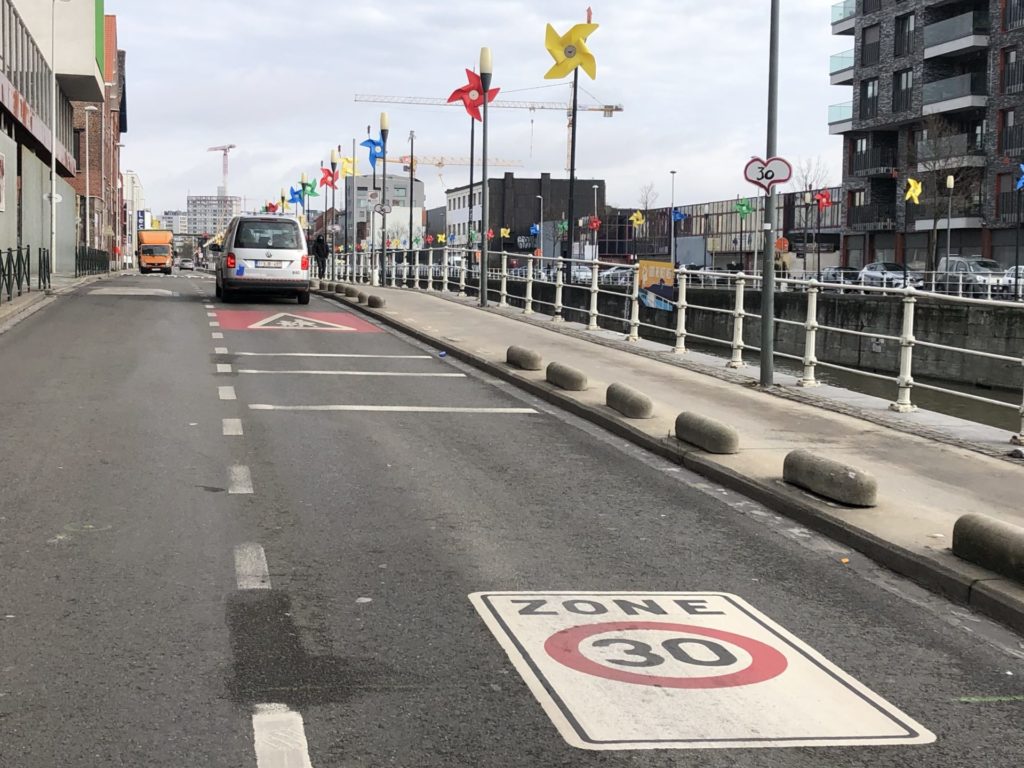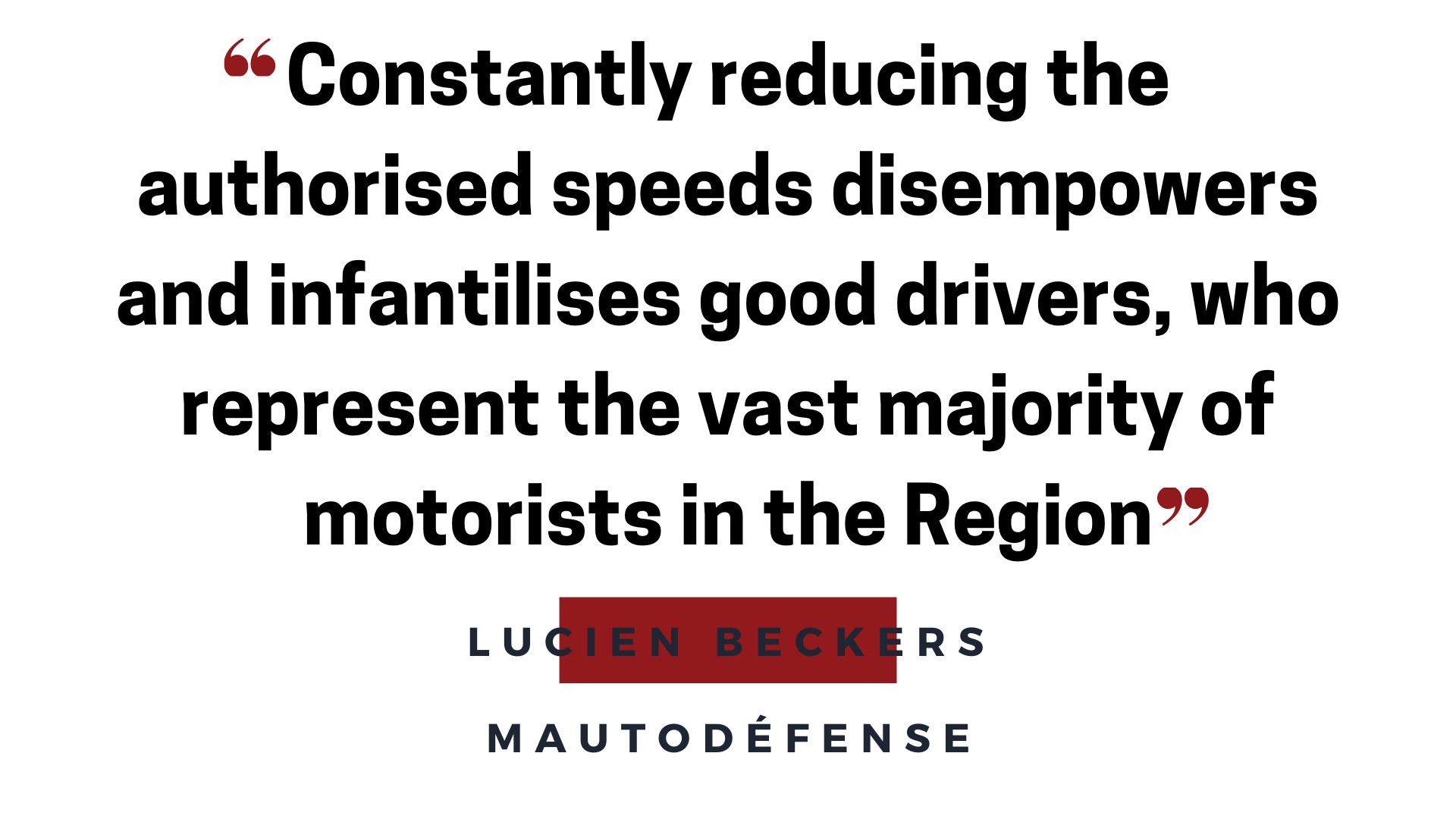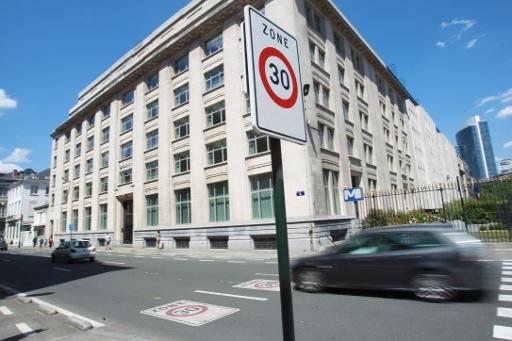Brussels most recent moves towards low-speed zones and more pedestrian zones have drawn criticism from pro vehicle groups, as the city struggles between a depiction as ‘anti-car’ and ‘pro-pedestrian.’
On one side of the debate sits Brussels Mobility Minister Elke Van den Brandt, who categorically thinks calling Brussels an anti-car city is unjustified. This debate has returned to the fray after a generalised speed limit of 30 km/h across the Capital-Region joined the already existing pedestrian zones, which has left many feeling that Brussels is turning its back on cars.
“It is not so much anti-car, as it is more pro-pedestrian and pro-bicycle,” Van den Brandt told The Brussels Times. “Brussels is a city that subscribes to ‘vision 0,’ meaning it aims to have zero traffic deaths or severe injuries by 2030.”
“To get there, however, you have to take measures,” she added. “That means making choices that fit into ‘zone 30,’ but that also fit into how we are organising our public space.”
Drivers Disagree
This push, however, is not without critics, including Lucien Beckers of the 'Mautodéfense' association, which represents the rights of motorists and motorcyclists.
"Improving road safety is certainly a desirable goal," Beckers said, "but constantly reducing the authorised speeds disempowers and infantilises good drivers, who represent the vast majority of motorists in the Region."
Related News
- Drivers unaware of Brussels 'Zone 30' will still be fined
- Police fear Brussels 'Zone 30' could fail once people return to work
- Court’s speeding verdict ‘not a danger’ for Brussels Zone 30
Currently, 70% of public space in Brussels is provided for individual cars, such as driving lanes or parking spots, according to Van den Brandt.
“We know that if we make different choices, we can add terraces, we can add bicycle lanes and we can make more room for pedestrians, and that is something we really want,” she said, adding that Brussels wants to be more “pleasant, attractive and liveable.”
These changes, however, are not to the liking of everyone, as shown by the nearly 36,000 members of the Facebook group 'L'automobiliste en a marre!' (translated as "Drivers are fed up!").
Only two weeks after it had been implemented, about 50 members of the group gathered at the Montgomery roundabout in Woluwe-Saint-Pierre to demonstrate their displeasure about the generalised lowering of the speed limit.
Nothing New
To Van den Brandt, it is important to note that the lower speed limit is not new for 65% of roads in Brussels, where the maximum of 30 km/h was already in force before the start of this year.
"Additionally, the municipality of Schaerbeek already was a complete zone 30," she pointed out. “In other municipalities, more changes had to happen, but all in all, this makes for a much better system for motorists.”
On top of that, as the first in Brussels, Schaerbeek has been a zone 30 for two years now, and has had no fatalities due to traffic accidents for almost as long, according to her. “So, those are clear results.”
This generalised zone 30, meaning across the entire region instead of only in certain zones, has to make navigating the city easier for drivers, as the rules are a lot clearer now.
"Where speed limits could vary from one street to the next, sometimes without a clear logic behind it, now it is always 30 km/h, unless indicated otherwise," Van den Brandt said.
The first evaluation about whether or not the lowered speed limit works as it was intended to will be made in April, as figures from several months are needed to draw some solid conclusions, according to the Region.
Additionally, the minister stressed that the aim is not the punish people who drive 31 km/h, but “to put a stop to really severe speeding, because that actually puts people’s lives at risk.”
Drivers going too fast will be fined – even if they claim they were unaware of the change – but such a large zone cannot rely on enforcement alone, according to Van den Brandt.
“Of course, that is an important part of it, but so are infrastructure and awareness,” she said. “We have to continue to focus on these three pillars.”
“We have increased the number of cameras and road checks, but the aim is not to raise the number of fines,” she said. “The aim is that people respect the road code, so that everyone can feel safe.”
Maïthé Chini
The Brussels Times



